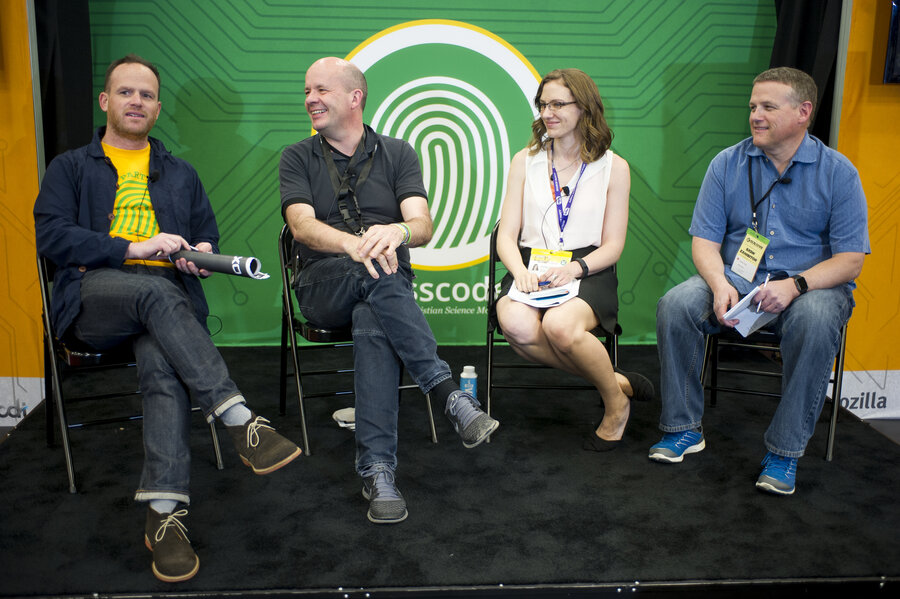Why we need an open-source society more than ever
Loading...
The fight for governmental transparency and personal privacy has been more prominent than ever over the last twelve months. Consider the recent events that have thrown this debate into stark relief and shown that the world needs open source technology more than ever:
- The FBI proved, by hacking into the phone of the San Bernardino shooter, that the US government doesn’t need the consent of technology companies or consumers in order to access personal, private and encrypted files.
- Last summer, the German government was forced to rein in its desire to prosecute whistle-blowers for revealing details of its proposed plans to increase domestic surveillance capabilities.
- The newly released Panama Papers have again shown that deep corruption, shady deals and embezzlement are still prevalent on a global scale. We’re still a long way from the open, transparency society toward which we strive.
This belief in the power of openness was the driving motive behind our 2016 Consumer Openness Index (COI) survey, unveiled last month at South by Southwest (SXSW). We polled 3,000 people in the United States, United Kingdom and Germany for their thoughts on data privacy and the role of government to both keep us secure and protect our right to privacy.
The COI showed that four out of five Internet users agree that everyone should have a fundamental right to privacy. Over half of those polled would stop using a social media site if news of a privacy scandal emerged. Fifty five percent of Americans already believe their government is already able to access personal data without consent — and this was prior to the FBI successfully cracking the iPhone of the alleged San Bernardino shooter.
As well as lowering costs and providing greater freedoms to consumers, adopting an open source approach is absolutely central for those companies and governments looking to restore some much needed trust.
To ensure a commitment to user choice and transparency in the long-term, here are the four tenets of what we think of as the Open Source Ethos:
1. Any service must be available from many providers
Even if a provider is trusted today, this could change over time. If a service is only available from one provider, users aren’t choosing a provider they trust — they’re not making a choice at all. Facebook is a perfect example of this. Should Facebook CEO Mark Zuckerberg decide to change the site’s privacy rules to our disadvantage, we have no choice but to agree. There’s no effective way to move our pictures, posts, contacts and messages to another service.
2. It must be possible to move data between services
Moving from one service to another also requires moving one‘s data. As long as services are based on open standards, like web domains, email contacts or documents, this is relatively easy. But proprietary formats make it impossible to effectively move messaging histories to other services because other software cannot read or manipulate the transferred data. These include PSD, Adobe Photoshop’s native image format and WMA, Microsoft’s closed audio format of choice.
3. Services must also be available as software
While using a service provider could make sense today, this may change over time. At some point in time, an organization may want to in-source the service or run it in a private cloud environment. What if companies want to store sensitive data, such as that stored in a customer management service like Salesforce, on premises within their own digital security? Without such services being available as software such transitions are either impossible or limited.
4. The software should be available in source code to everyone
Even with the software available, without open-source software (where anyone can inspect and modify the underlying code) users cannot truly trust a supplier not to alter the service. If the software is fully open then no trust is required. The supplier is fully transparent about what the system does by showing the world how it works. Everyone can audit the code and flaws, including backdoors, become impossible over the long run. This works in a similar way to the end-to-end encryption that the recent Burr-Feinstein Encryption Bill attempts to undermine. If a provider can’t physically access your data you don’t have to trust them not to give it to a third party.
These commandments and examples establish transparency, user privacy and, crucially, trust at the heart of digital services. As consumer trust continues to fade in government and corporate institutions, a commitment to transparency and openness would be a refreshing and much needed change.
As governments increasingly seek to restrict our digital freedoms and global companies look for new ways to monetise consumer data, open source technology is needed more than ever. It is our joint responsibility to continue to champion the open source approach and forge the kind of society we want to our children to enjoy.
Rafael Laguna is chief executive officer of Open-Xchange. Follow him on Twitter @rafbuff.







